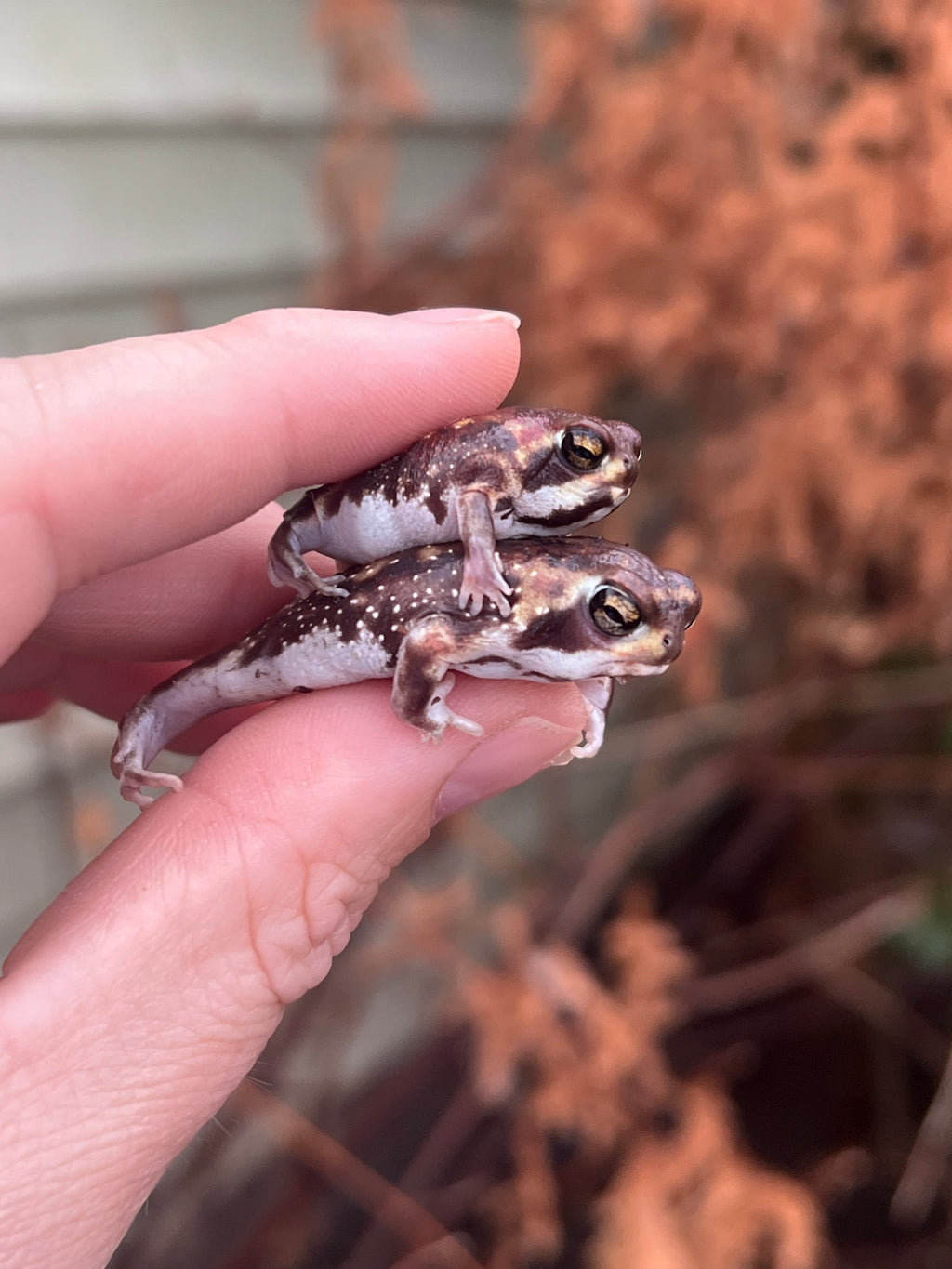Rain Frog for Sale: Unlock the Appeal of Nature with Your Own Amphibian Buddy!
Common Wellness Issues in Reptiles: Symptoms and Solutions
In the detailed world of reptile treatment, understanding the typical wellness concerns that might influence these special animals is paramount in guaranteeing their health. From breathing infections that can calmly take hold to metabolic bone conditions that can incapacitate, reptiles are vulnerable to a series of ailments that require eager observation and prompt treatment. Whether it's coming to grips with parasitic problems, navigating dehydration concerns, or resolving skin disorders that materialize in subtle ways, being in harmony with the signs and equipped with the knowledge of reliable options is vital for any kind of reptile proprietor. By delving additionally into the nuances of these health and wellness concerns and exploring the practical solutions available, one can guard the health and vigor of these interesting animals.
Respiratory System Infections
Respiratory infections in reptiles can dramatically affect their overall health and call for prompt focus from seasoned vets. These infections are commonly brought on by fungi, microorganisms, or viruses and can materialize through signs such as hissing, nasal discharge, open-mouth breathing, and lethargy. In reptiles, respiratory system infections can be specifically testing to identify and treat due to their one-of-a-kind makeup and physiology. Vets often rely upon a mix of physical assessments, diagnostic imaging, and laboratory tests to accurately recognize the underlying cause of the infection.
Treatment for respiratory infections in reptiles generally entails a mix of supportive treatment, such as keeping correct moisture degrees and temperature level gradients in the unit, along with targeted medication to deal with the certain microorganism accountable for the infection. It is important for reptile owners to monitor their pets carefully for any type of indications of breathing distress and seek vet treatment at the earliest indication of a problem. With prompt intervention and ideal therapy, several reptiles can recuperate totally from respiratory system infections and return to typical tasks.

Metabolic Bone Illness
What factors add to the growth of Metabolic Bone Disease in reptiles?
Metabolic Bone Illness (MBD) in reptiles is mostly created by a lack of proper calcium, phosphorus, and vitamin D3 degrees in their diet. When reptiles do not get ample calcium, either via their food or correct UVB direct exposure for vitamin D3 synthesis, they are at a high risk of creating MBD. Reptiles with diet plans low in calcium or imbalanced calcium to phosphorus ratios are especially prone. Additionally, poor direct exposure to UVB light protects against reptiles from manufacturing vitamin D3, which is essential for calcium absorption and bone wellness.
Not enough moisture levels can additionally affect a reptile's ability to metabolize calcium properly. Normal veterinary check-ups, proper husbandry methods, and a well balanced diet are essential to avoid Metabolic Bone Disease in reptiles.
Parasitic Problems
Parasitic problems position a substantial health and wellness risk to reptiles, impacting their total health and requiring prompt veterinary interest. Reptiles can be affected by numerous bloodsuckers, including termites, ticks, interior worms, and protozoa. These bloodsuckers can cause a variety of symptoms, such as weight-loss, sleepiness, skin irritability, diarrhea, and also fatality if left neglected.
One usual parasite located in reptiles is the mite, which can cause skin irritability, stress, and anemia. Ticks are one more outside bloodsucker that can cause and transfer illness discomfort to the reptile. Inner parasites like worms and find more information protozoa can lead to gastrointestinal problems, lack of nutrition, and deteriorate the reptile's body immune system.
To identify a parasitic infestation, a veterinarian may carry out fecal examinations, skin scrapings, or blood examinations. Therapy commonly entails deworming medications, antiparasitic baths, or in official site severe instances, a hospital stay. Preventative steps such as regular veterinary check-ups, appropriate hygiene, and quarantine procedures for brand-new reptiles can aid minimize the threat of parasitical problems and make sure the health of reptile family pets.
Dehydration and Hydration Issues
Dehydration in reptiles can considerably influence their wellness and wellness, requiring timely intervention and ideal hydration monitoring. Reptiles are susceptible to dehydration as a result of numerous aspects such as insufficient water consumption, high environmental temperatures, and certain health and wellness conditions. Symptoms of dehydration in reptiles consist of sunken eyes, lethargy, loss of skin flexibility, and lowered peeing. If left without treatment, dehydration can cause severe health and wellness issues and also be fatal to the reptile.
To stop dehydration, reptile owners need to make sure that their pets have access to tidy water whatsoever times. The water recipe ought to be huge enough for the reptile to saturate in if required, particularly for species that take in water via their skin. Additionally, maintaining proper humidity degrees in the reptile's unit and supplying normal baths can assist protect against dehydration.
In situations of dehydration, it is crucial to seek veterinary treatment immediately. A veterinarian might provide fluids either orally or with injections to rehydrate the reptile. It is vital to deal with the underlying reason for dehydration to stop reoccurrence and ensure the reptile's general health.
Skin Disorders

Conclusion

Respiratory infections in reptiles can considerably affect their general health and wellness and need prompt attention from skilled vets (rain frog for sale). Preventative steps such as normal veterinary check-ups, correct hygiene, and quarantine treatments for new reptiles can aid minimize the threat of parasitic invasions and guarantee the wellness of reptile family pets
If left without treatment, dehydration can lead to serious wellness problems and also be fatal to the reptile.
Consistently examining your reptile for any adjustments in skin appearance, shade, or appearance can aid in very early discovery and treatment of skin conditions, advertising the overall health and health of your scaly companion. - rain frog for sale
In final thought, reptiles are susceptible to various wellness issues such as breathing infections, metabolic bone condition, parasitical infestations, dehydration, and skin conditions.